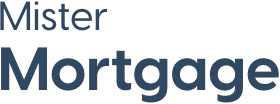
-
On average, existing owner-occupied homes were 11.2% more expensive in August 2024 than last year, marking the largest increase in two years.
-
The price index for existing owner-occupied homes increased by 1.1% in August compared to July. After peaking in July 2022 and declining for a year, prices have risen since June 2023. By August 2024, they were 5.7% higher than the July 2022 peak.
-
According to Statistics Netherlands (CBS), 17,915 homes were bought and sold in the Netherlands in August. This represents an increase of over 12% compared to the same month last year.
-
Rabobank anticipates that prices of existing homes for sale will increase by an average of 9.1% in 2024 and 10.7% in 2025.
-
According to Rabobank, the rapid price increase is mainly driven by a significant rise in demand. They noted that this surge is further supported by rising wages and falling mortgage interest rates, which improve potential buyers' borrowing capacity.
-
More properties are available for first-time buyers due to investors selling their rental properties.
-
Given the challenging housing market, many homeowners are choosing to renovate instead of moving.
-
Borrowing for other purposes, like purchasing homes abroad (especially in Spain), is also becoming more common.
-
Competition among providers is now centred on interest rates and loan conditions. Developments in the housing market are prompting lenders to revise their terms frequently.
-
According to Statistics Netherlands (CBS), in July 2024, average rents in the Netherlands were 5.4% higher than in July 2023, marking the largest increase since 1993. In July 2023, rents had only risen by 2.0%.
-
Rents for social housing increased by an average of 5.6% set by social sector landlords and 5.7% set by other landlords. In comparison, private sector housing rents rose by an average of 5.0%.
-
In the Netherlands, rent increases are regulated by law. The maximum increase depends on the type of rental agreement (regulated or liberalized) and the tenant's income. For social housing, rent increases are capped at 5.8% starting July 1, 2024. Landlords can also choose to raise rents based on the tenant's income.
-
The maximum rent increase for private-sector housing is 5.5% from January 1, 2024, to January 1, 2025.
-
Home purchases accounted for 74,820 applications (+20%), while refinancing and additional financing reached 41,232 applications (+27.4%).
-
A widening gap has emerged: first-time buyers need an average personal investment of €42,000, whereas existing homeowners only require €35,000 to purchase homes valued at nearly €600,000.
-
The average amount of personal funds needed for home purchases remains stable at around €40,000, with starters requiring more and movers needing less.
-
The starter high segment dominated the buyer's market with 15,060 applications, marking a 40% increase.
-
Renovators remain the largest group in the non-buyer market, with 19,500 applications, reflecting a 20% increase. They are joined by notable rises in applications from pensioners (+40%) and refinancers (+32%).
-
The buyer's market expanded most in Limburg (+24%) and Friesland (+23%)
-
Label C is the most common (22% of requests), followed by A (19%) and B (13%)
-
14.2% of applications included financing for energy-saving measures, slightly down from 14.4% in Q3 2023.
-
Energy-efficient homes (label A or higher) averaged €548,400, up from €520,900 (+5%)
Schedule a complimentary introductory call with our mortgage specialists. We specialize in mortgages for expats and are dedicated to navigating you through the home-buying process.
-
Access to a trusted network
-
Highly competitive rates and flexible terms.
-
Guidance through the entire mortgage process.
-
English translations of bank documents are shared

- 100% Independent Advice




